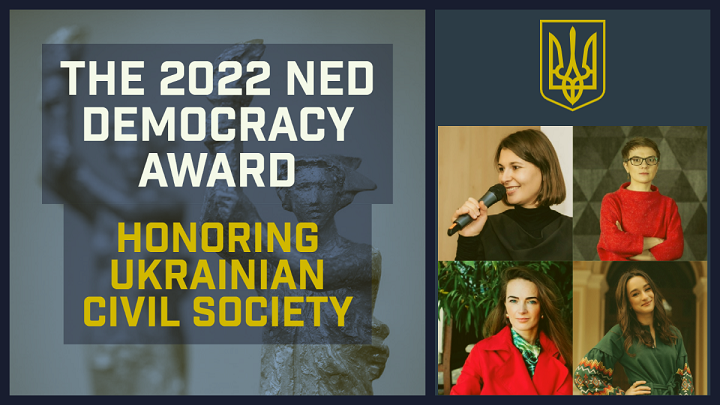The West is now engaged in a generational struggle against big, ruthless, and wealthy authoritarian regimes, notes Mick Ryan, a military strategist and an Adjunct Fellow at the Center for Strategic and International Studies. In accepting that this will be a long war, the West should make explicit that its goal is a Ukrainian victory achieved through a Russian defeat. By committing to support Ukraine for the duration of the conflict, the West can undermine Putin’s efforts to outlast Ukraine’s patrons. This commitment also provides certainty to donor countries, which can scale up production and engage in necessary research and development for counter-drone and counter-mine endeavors, he writes in How Ukraine Can Win a Long War, an article for Foreign Affairs:
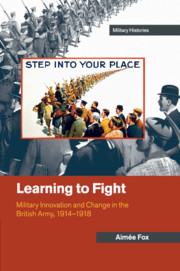 But even the most adaptive institutions have a limit to their ability to absorb new ideas and technologies. The building, sustaining, and evolving of a highly capable military organization—especially one with many new formations—can take months or years. As Aimée Fox-Godden observed in Learning to Fight, a study of the massive institutional learning and adaptation that occurred within the British Army between 1914 and 1918, the United Kingdom was able to gradually improve its performance thanks to “a combination of its pre-war ethos and increased fluidity in wartime” that created “organizational and cultural flexibility, promoting informal learning and encouraging individuals to innovate.”
But even the most adaptive institutions have a limit to their ability to absorb new ideas and technologies. The building, sustaining, and evolving of a highly capable military organization—especially one with many new formations—can take months or years. As Aimée Fox-Godden observed in Learning to Fight, a study of the massive institutional learning and adaptation that occurred within the British Army between 1914 and 1918, the United Kingdom was able to gradually improve its performance thanks to “a combination of its pre-war ethos and increased fluidity in wartime” that created “organizational and cultural flexibility, promoting informal learning and encouraging individuals to innovate.”
A shift in the West’s policy in favor of negotiations would be disastrous, says a leading analyst.
From the outset it has been striking to note what most Western governments do not say about the war. Many do not say that Ukraine needs an unambiguous victory. The majority do not say that Ukraine’s full territorial integrity must be restored, notes James Nixey, Director of the Russia and Eurasia Program at Chatham House:
They certainly do not say – even though it is the corollary of the previous two statements – that Russia needs to suffer a clear defeat. Instead, many in the US appear to measure Ukrainian success in terms of its survival: suggesting they are quite willing to accept the prospect of Russia dragging the conflict out to the point of exhaustion, but unwilling to entertain the idea of Russia being defeated.
Weakening support now will only make Ukraine more vulnerable (with consequences for wider European and global security), threaten the gains made so far, and give Putin leverage he does not currently possess – especially in view of Russia’s internal tumult over recent weeks, he asserts.
Op-Ed: How NATO Is Helping Ukraine | Internationale Politik Quarterly https://t.co/se6tDtzyS6 via @IPQuarterly
— Democracy Digest (@demdigest) August 30, 2023
The Russian dictator is actively preparing for a long war and appears convinced that the democratic world will eventually tire of supporting Ukraine. Unfortunately for Putin, it is difficult to imagine any Western leader abandoning the Ukrainian people unless their determination to resist Russia begins to visibly wane, adds Peter Dickinson, editor of the Atlantic Council’s UkraineAlert service:
Popular support for Ukraine’s cause helped persuade Western leaders to provide the ever-expanding quantities of military aid that have transformed the course of the entire war. If millions of ordinary Ukrainians had not demonstrated such inspirational bravery, it is entirely possible that the West would have chosen to stand aside, much as it did during Russia’s 2008 invasion of Georgia and the 2014 occupation of Crimea. That did not happen in spring 2022, and it is unlikely to happen as long as Ukraine’s remarkable resilience remains intact.
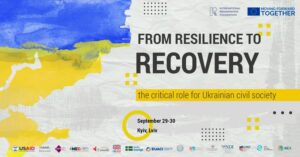
Credit: NDI
“Civil society is a key driver of reforms and democratic changes in Ukraine, and its main challenge now during the war is to keep pushing for a democratic future for our state despite the constant physical and emotional exhaustion caused by the war,” says Marta Semeriak, deputy CEO for Organisational Development of The Centre of United Actions.
“It is difficult to keep the pace of promoting reforms adhering to high standards of work and understanding the scale of responsibility of the civic organisations in preserving the rule of law and advancing the European future of Ukraine,” she tells Stockholm’s SI Leader Lab leadership program. “Ongoing tragedies around, despicable atrocities and the destruction of everything we have built before are creating a new unimaginable background for civic organisations’ work.”
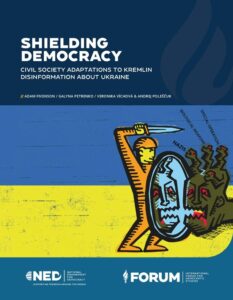 The Center for European Policy Analysis a partner of the National Endowment for Democracy (NED) describes Ukraine’s Valley Forge Moment and explains Why Russians Scorn Ukrainian Independence.
The Center for European Policy Analysis a partner of the National Endowment for Democracy (NED) describes Ukraine’s Valley Forge Moment and explains Why Russians Scorn Ukrainian Independence.
Anyone who bet against George Washington in 1777-1778 would have lost. Anyone who bets against Ukraine in 2023-2024 should be prepared for the same outcome, says Ambassador Kurt Volker is a Distinguished Fellow at CEPA:
No one today can know with certainty the outcome of Russia’s war against Ukraine. Perhaps Ukraine will fall. Perhaps Russia will pull itself together after tearing itself apart. But Ukraine has the reason and will to fight, while Russians do not. Ukraine has substantial outside help, while Russians only have Iran. Ukraine has a moral cause, while Russians do not.
The refusal of Ukrainian society to accept the Russian model led to their dehumanization; in Russian eyes, those who resist are Nazis, notes Dr. Oleksandr Shulga, the head of the Institute for Conflict Studies and Analysis of Russia (IKAR):
The key lies in the conscious or unconscious perception that Ukraine must be absorbed and cannot be treated as a sovereign equal. This is deeply ingrained in the everyday consciousness and life of the Russian public. It will not change simply by removing Putin and his regime, whatever the claims of the country’s opposition.
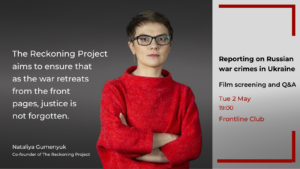 Russia’s unabated aggression against Ukraine, China’s assertiveness, and extremist challengers in upcoming elections in the United States and Europe are forcing governments to question the future of the trans-Atlantic relationship, the Brookings Institution adds. What interest does America have in a Europe at peace? And what should Europeans do to help Ukraine win said peace, manage China, and keep NATO and the European Union together? How do Western democracies balance existential threats, such as climate change and creeping authoritarianism, with the needs of domestic policy? And what can they do to shape a global order that maximizes peace and security for all?
Russia’s unabated aggression against Ukraine, China’s assertiveness, and extremist challengers in upcoming elections in the United States and Europe are forcing governments to question the future of the trans-Atlantic relationship, the Brookings Institution adds. What interest does America have in a Europe at peace? And what should Europeans do to help Ukraine win said peace, manage China, and keep NATO and the European Union together? How do Western democracies balance existential threats, such as climate change and creeping authoritarianism, with the needs of domestic policy? And what can they do to shape a global order that maximizes peace and security for all?
In a season-opening event on September 15, the Center on the United States and Europe at the Brookings Institution will host a three-part conference to address these issues. The conference will open with a conversation between Oxford historian Timothy Garton Ash, author of the recent book “Homelands: A Personal History of Europe,” and Brookings Senior Fellow Fiona Hill, moderated by The New Yorker’s Susan Glasser, about lessons of the post-Berlin Wall period. The event will close with a panel on the resilience of democracies in the face of transformative global disruptions and contested Western hegemony. RSVP
